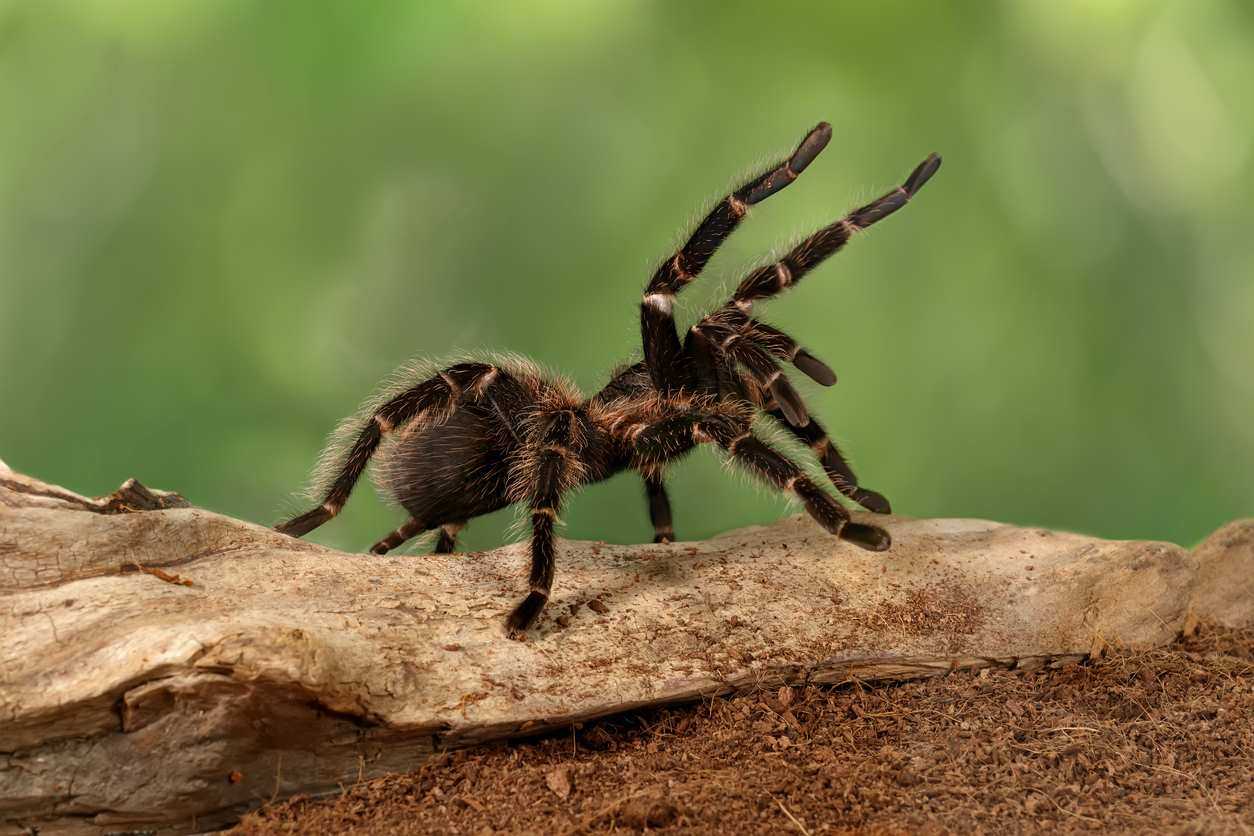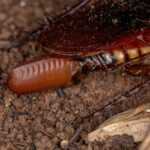Getting to Know Tarantulas
Discover the true nature of this often misunderstood arachnid and learn all the safety tips you need to responsibly interact with them in the wild or as pets.
Where do Tarantulas Live?
While tarantulas can be located in a variety of environments, they tend to favor warm and dry climates such as deserts and grasslands. However, it’s not uncommon for tarantulas to unexpectedly find their way into people’s homes. This can occur when they crawl through open doors, windows or other small openings.
Tarantulas are also sometimes kept as pets, but that does not necessarily mean they should be welcome in your home. Responsible Pest & Scorpion Control is here to help you handle any tarantula problems by equipping you with expert knowledge and offering effective treatments.
Keep reading to learn more about the misconceptions often associated with tarantulas, and how best to approach these eight-legged visitors.

Are Tarantulas Dangerous?
While many people may fear and avoid tarantulas due to their big size and appearance, these creatures are actually not as dangerous as you may think. In fact, tarantulas are one of the most misunderstood creatures on the planet and are actually often portrayed negatively in popular culture.
But that does not mean they are without their risks, especially if you have an allergy to their bites. Any unwanted tarantula sighting should be taken seriously.
Do Tarantulas Bite?
Despite their formidable appearance, tarantulas are relatively harmless pets when handled carefully. While all spiders are capable of biting, tarantulas are known for being docile and rarely attacking humans or other animals. In fact, tarantula bites are relatively uncommon and are not typically dangerous to humans, although they can cause swelling and discomfort along with potential allergic reactions.
Tarantulas usually only bite as a last resort to defend themselves from a perceived threat, such as if they are mishandled or provoked. So if you have tarantulas as pets, it’s important to handle them with care and avoid provoking them, as they may bite if they feel threatened.
Are Tarantulas Venomous?
Tarantulas are generally considered venomous, although their venom is not typically harmful to humans. Tarantulas use their venom to immobilize their prey, and their hunting habits typically involve stalking and overpowering other insects and small animals.
Although their bites can cause some pain and swelling, severe reactions are rare and typically occur in people with allergies to spider venom. These individuals may experience respiratory distress, itching, and other symptoms after being bitten by a tarantula. If you exhibit these symptoms following a tarantula bite, seek medical attention promptly to ensure proper treatment and prevent complications.
How Can I Keep Tarantulas out of My Home?
Start by thoroughly sealing any potential entry points, such as cracks or gaps in windows, doors, and foundation. Installing properly fitted screens on windows and vents is also crucial. Keep doors closed, especially during the evening when tarantulas are more active, and consider using door sweeps to seal gaps at the bottom.
Additionally, maintaining a tidy yard can help keep away tarantulas and countless other harmful pests. Commit yourself to routinely cleaning outdoor debris, trimming vegetation away from the house, and reducing outdoor lighting to keep them away.
Invest in Expert Tarantula Control Services
If you want to get rid of tarantulas, different spiders, or other unwelcome pests, your best option will always be to call a pest control specialist. That’s where Responsible Pest & Scorpion Control comes in. Our team of highly trained technicians has the knowledge and experience to effectively address your pest problems.
Whether you’re dealing with tarantulas, spiders, insects, or many other pests, count on us to eliminate them at the source and keep them out for good. Give us a call or contact us online today to get started!



